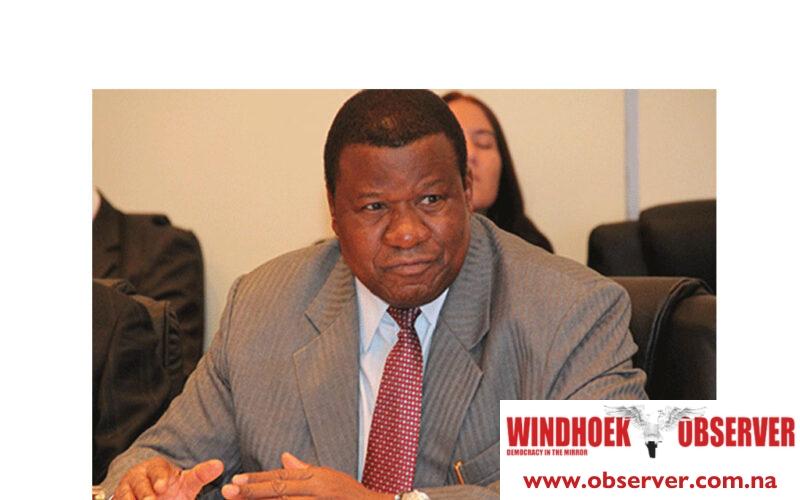Erasmus Shalihaxwe
The Minister of Works and Transport, John Mutorwa has tabled the Vehicle Mass Bill, a law that will hold accountable all people involved in the overloading of vehicles on public roads.
Mutorwa submitted the proposed Bill to the National Assembly this week and requested fellow lawmakers to discuss it at appropriate stages.
He said currently, only part of the transport logistics chain is held accountable for overloading, a practice that renders the legislative regulatory framework and system practically ineffective.
The ministry proposed that through the Vehicles Mass Bill, the whole transport logistics chain involved, such as the consignor, consignee, operator and driver should be legally responsible for overload offences.
“Calculation of overload fees and penalties should be based on the overloaded weight and the distance travelled with the overload weight. Fees and penalties should compensate for damages caused to the road pavement as a result of overloading.
The success rate of the prosecution of road traffic offences, including overload offences, in the country’s Courts, is very low. The expectation is, if the process could be removed from the Court system; and dealt with administratively, then the success rate would be increased dramatically,” explained Mutorwa.
The minister also stressed that it needs to be highlighted that: at present, the Courts are overstretched and overstrained, but the overload offences do not carry the same blameworthiness and element of “moral indignation” as the criminal offences, for example, theft, rape, murder etc.
He stated that the deviation from the requirement of a public hearing, in Article 12 of the Namibian Constitution, in the case of overloading offences, is constitutionally possible if the overload offences are decriminalised and handled as administrative offences.
Because overloading offences are by their nature administrative offences and should be indicated in an Act of Parliament and be adjudicated in accordance with the principles of Administrative Law and not Criminal Law.
“It needs to be stressed that all four role players are essentially and practically involved, in the overloading of a motor vehicle; which are: the consignor (the person (s) who provide the goods, the operator, the driver and the consignee (the person who receives the goods). Currently, of these role players, only the driver is marked as the “DOER”, taking criminal action while in fact, the other role players in the real sense carry more guilt in respect of overloading,” Mutorwa said.
The Parliamentarian further stated that the model for converting overload offences to administrative offences that have been developed is subject to strict prerequisites that will have to be met in order to prevent the Roads Authority and the Ministry of Works and Transport from being implicated in unnecessary litigation.
“The mass measuring equipment must be reliable, the system must be automated, limiting human intervention; The system that is implemented must be cost-effective (the system cannot cost more than the savings it effects); The system must be easy for operators to understand; The system to be implemented should be simpler than the current system; and Compliance with the system by foreigners must be ensured. The system has the appeal provision in terms of Article 18 of the Namibian Constitution,” Mutorwa emphasised.
The lawmaker indicated that the aforementioned requirements and prerequisites are meant to ensure that the system is fair, equitable, just and transparent as required by the Namibian Constitution.
Adding that under this system, the offence and related offences, such as evading a weigh station or absconding a weigh station, become violations and will be adjudicated in terms of a streamlined administrative process.
According to Mutorwa, the Bill makes provision for immediate payment of fees at the weigh station, by electronic means. The operator is however afforded the opportunity to make a submission explaining why he or she should not be held liable for the violation and if successful, is entitled to a refund.
“This process will also address the issue of foreign operators not paying their fines. This Bill further intends to cure the disparities between holding the correct overload offender responsible for the relative damage which was caused to the road network through overloading,” argued Mutorwa.




